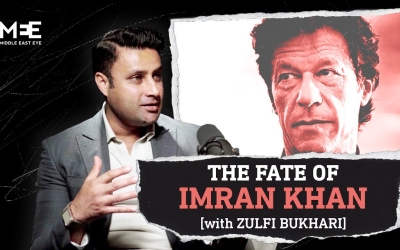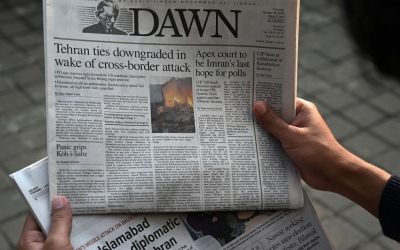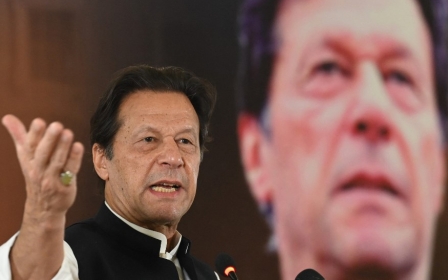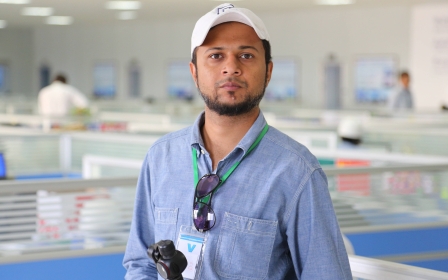Pakistan elections: Polls open against backdrop of political muzzling allegations
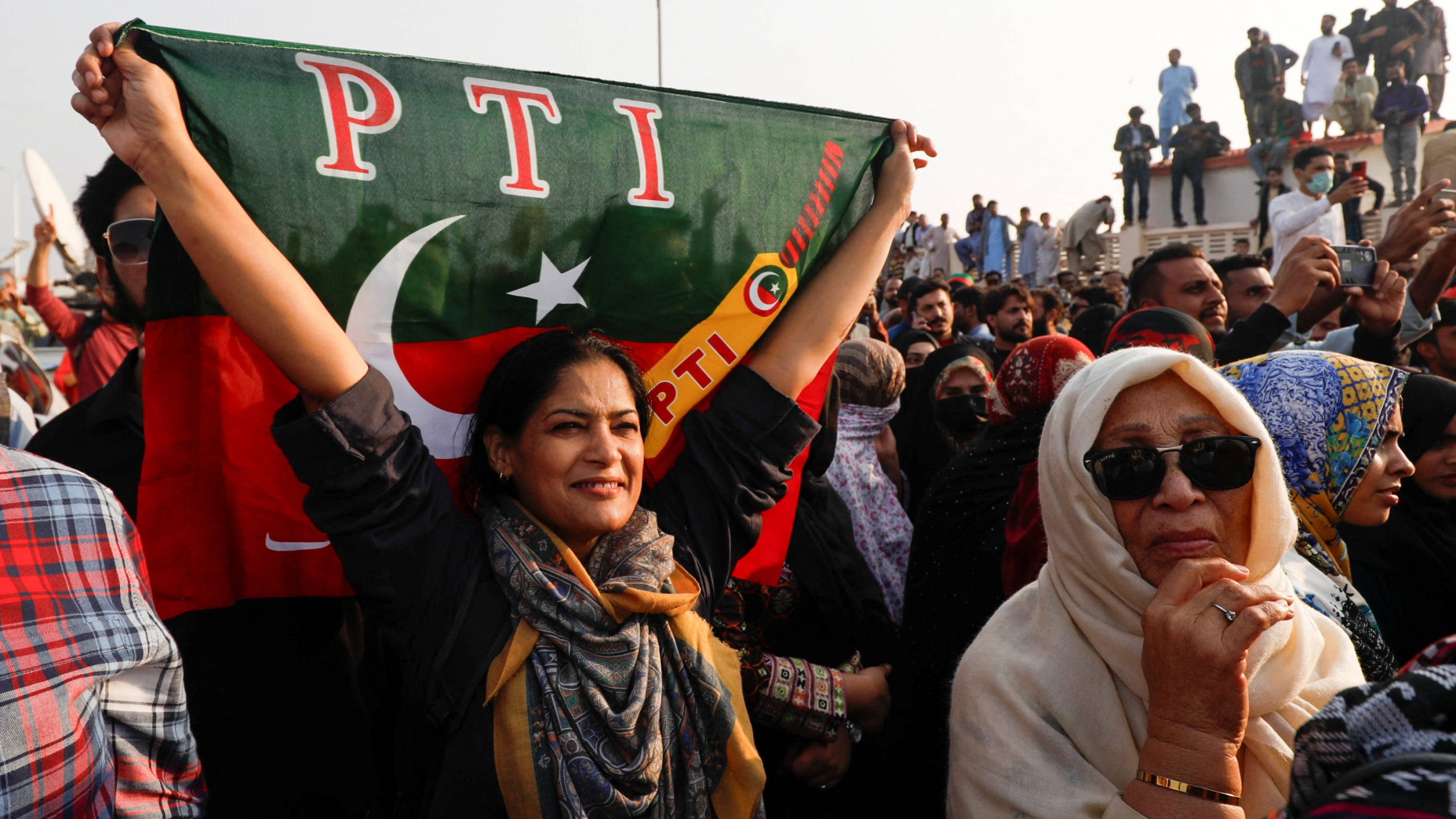
Pakistanis will head to the polls on Thursday amid a cloud of allegations of political and media muzzling, days after former Prime Minister Imran Khan was handed a string of jail sentences.
"Polls show that he would have probably won by an 80 percent majority," Khan's cousin, Usman Khan, told Middle East Eye on Tuesday.
"[Pakistani authorities] don't want a leader there that will have a majority, that will be able to change things, and... put restrictions on the most powerful and the most corrupt."
Usman Khan was speaking during a press conference in central London held by Citizens Against State Torture (Cast), a UK-based campaign he leads.
This week, Cast launched an urgent petition calling on Irene Khan, the UN special rapporteur on freedom of opinion and expression, to speak out on and investigate allegations of widespread political suppression in Pakistan.
New MEE newsletter: Jerusalem Dispatch
Sign up to get the latest insights and analysis on Israel-Palestine, alongside Turkey Unpacked and other MEE newsletters
Free elections were also particularly important given recent geopolitical events involving Pakistan, according to the campaign.
Khan was ousted as prime minister following a vote of no confidence in April 2022, and has been hit with over 180 criminal charges.
He has been behind bars since August, serving three years of a prison sentence, mostly at Adiala jail in Rawalpindi.
Last week, Khan and his wife, Bushra Bibi, were sentenced to seven years in jail for violating a law stating that a woman must wait three months before remarrying.
In a separate conviction earlier in the week, Khan and Bibi were sentenced to 14 years in jail after being found guilty of corruption. In a case known as "Toshakhana", they were convicted of selling state gifts for an undeclared profit while in office.
A few days earlier, in another conviction, the former international cricket star was given a 10-year prison sentence on charges revolving around alleged leaking of sensitive state diplomatic documents.
Khan denies all allegations against him, and has repeatedly said that Pakistan's military leadership has orchestrated charges to ensure he does not run in Thursday's elections.
Internet shutdowns
Not only has Khan been jailed, but since his ousting, the Pakistan Electronic Media Regulatory Authority (Pemra) has imposed several bans and restrictions on reporting about the former premier.
"It is notable that you can see an increase in some of the most dramatic attacks of media censorship," Rosa Polaschek, a barrister at Doughty Street Chambers who put together the petition to the UN rapporteur, told MEE.
"Particularly the use of internet shutdowns, [which] is a very modern form of censorship. The repeated use of that is a particularly concerning new development."
Polaschek noted several examples of censorship, including in June last year, when a news anchor was required to apologise for merely saying Khan's name on air.
A month later, another news channel ran a report in which Khan's entire face and body were blurred out.
The various bans have meant that Pakistani commentators have not even been able to criticise Khan publicly - as that would require using his name.
In a Pemra document shared to media networks, dated August 2022 and seen by MEE, television channels were required to delay certain broadcasts "in order to ensure effective monitoring and editorial control".
Meanwhile, internet monitors have reported blocks on social media, bandwidth throttling and the deliberate reduction of internet speed.
Polaschek pointed out that following the circulation of a video of Khan being arrested inside a courtroom in April last year, Facebook and X (formerly known as Twitter) were blocked for four days.
Polaschek said that Article 19 of the International Covenant on Civil and Political Rights, to which Pakistan is a party, includes the freedom to seek and receive information.
"Although the right to free expression is not absolute, the ability to put limits on the rights may never be invoked as a justification for the muzzling of the advocacy of multi-party democracy and human rights," she said.
"And yet, that is exactly what we see in Pakistan."
'Only solution is free elections'
The alleged suppression goes beyond Khan, and includes a crackdown on his Pakistan Tehreek-e-Insaf party (PTI).
Cast's petition stated that thousands of PTI supporters and figures had been arbitrarily detained since 2022, many of whom were later charged in military courts under military law.
Ahead of this week's election, PTI was refused permission to use its cricket bat electoral symbol, leaving candidates to be identified only as independents.
"The only solution is free and fair elections," said Usman Khan. "That's what Imran Khan has been asking [for] again and again, every day."
Tayab Ali, a partner at Bindmans LLP and representative of Cast, said the recent exchanges of fire between Pakistan and Iran along the two country's borders highlights the urgency of having fair elections.
"We've seen just in recent days, perhaps quite surprisingly, Iran and Pakistan having a violent military spat with each other," Ali told MEE.
"When you have a state that is taking action like that, as part of a wider conflict... you need to be sure that the people in that state are supportive of the government's actions."
Middle East Eye delivers independent and unrivalled coverage and analysis of the Middle East, North Africa and beyond. To learn more about republishing this content and the associated fees, please fill out this form. More about MEE can be found here.


